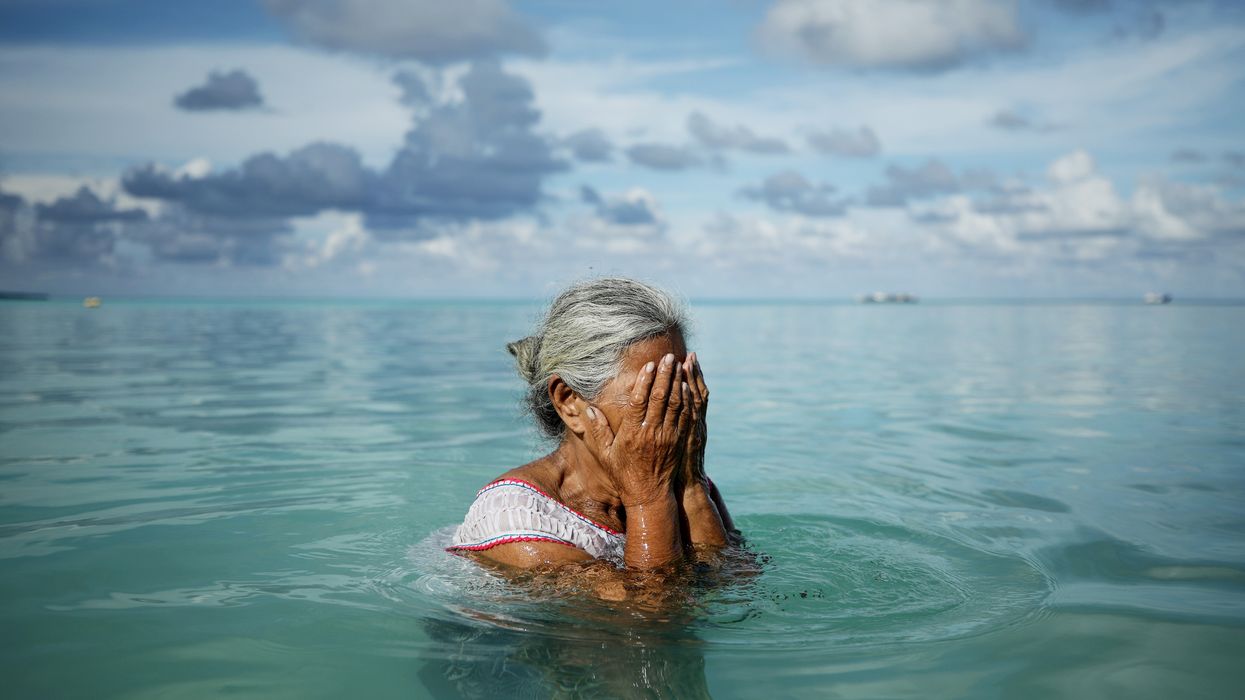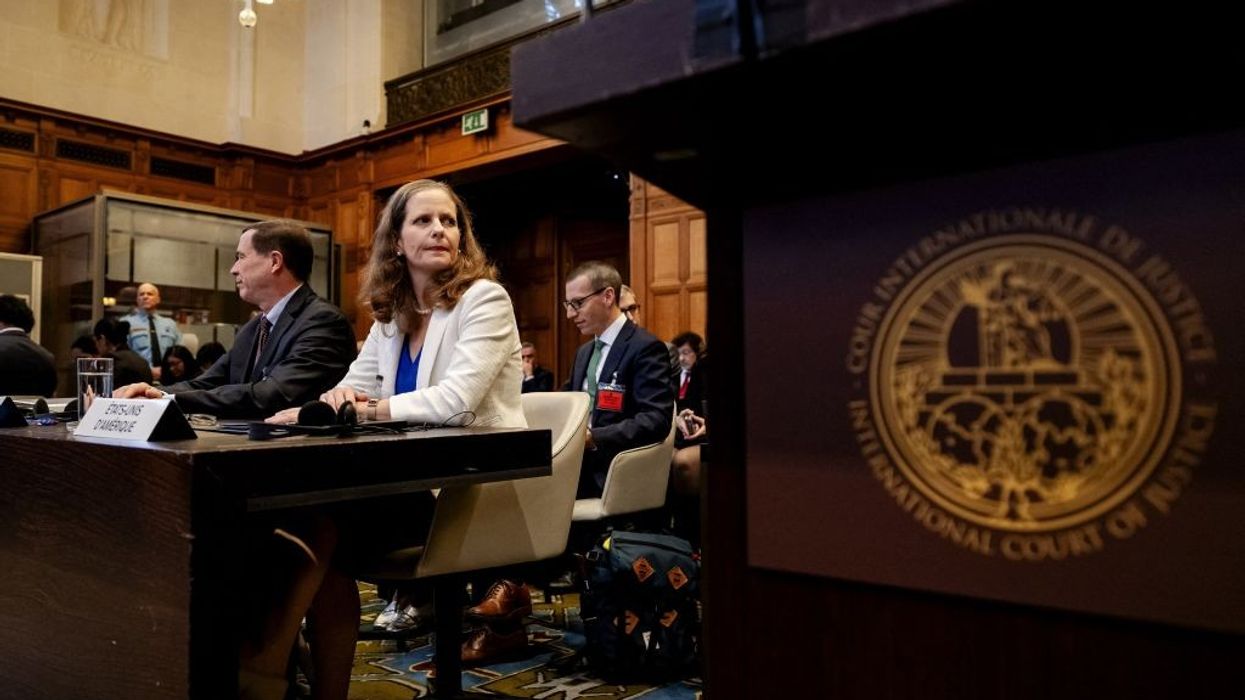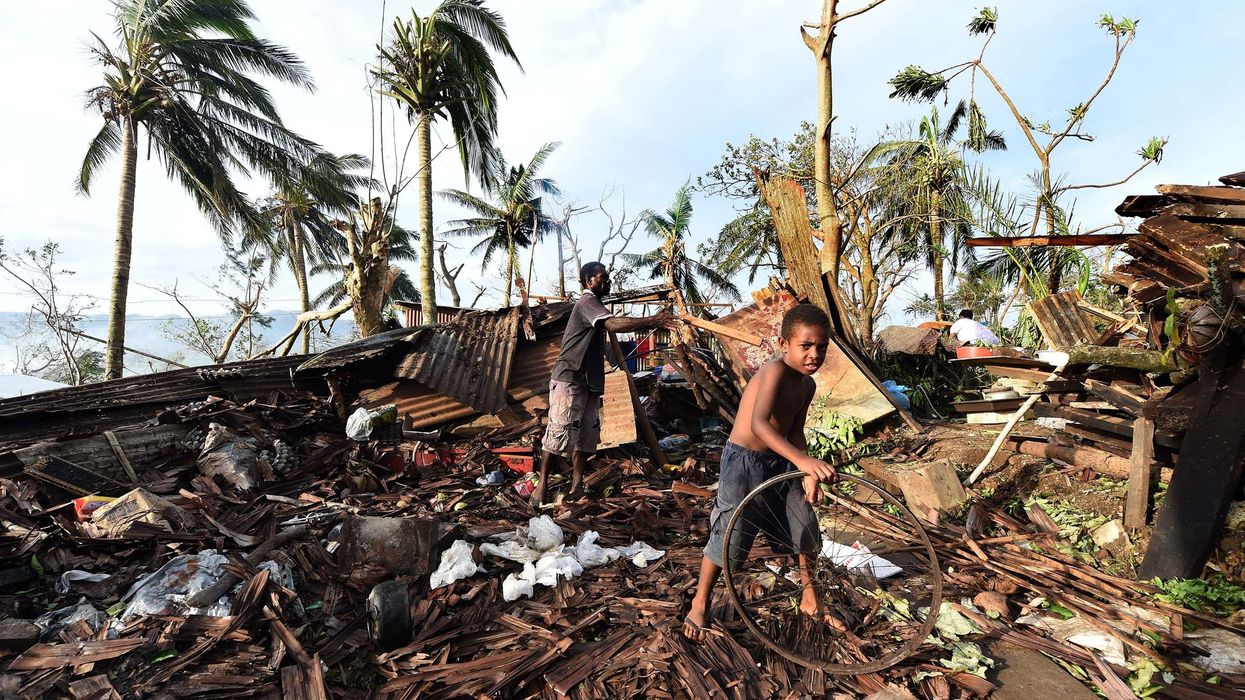"Vanuatu considers it imperative that the international community takes this conversation seriously, and we warmly invite all member states to engage," said Ralph Regenvanu, special envoy for climate change and environment for Vanuatu, in a statement. "Legal recognition of severe and widespread environmental harm holds significant potential to ensure justice and, crucially, to deter further destruction."
The recognition of environmental and ecosystem destruction as a crime could allow the court to prosecute individuals accused of ecocide, such executives of pollution-causing companies whose activities are linked to planetary heating and the sea-level rise and intense storms small island nations increasingly face and officials of governments that continue to emit high levels of greenhouse gases.
Philippe Sands, a law professor at University College London and co-chair of an expert panel on the legal definition of ecocide, said that as drafted, the Rome Statute, which established the ICC, "cannot adequately address environmental harms" and must be changed to reflect "a growing recognition that severe environmental destruction deserves the same legal accountability as other grave international crimes that focus on the human."
"People clearly understand that the most severe forms of environmental destruction harm all of us, and that there is real deterrent potential in creating personal criminal liability for top decision-makers."
“There is a manifest gap in the statute of the ICC, and ecocide is now firmly on the agenda, a vital and necessary moment for an effective international law," said Sands. "This is a moment of generational change, one that is needed to safeguard our environment and signal to coming generations that the world is truly serious about doing so."
Sands told The Guardian that he is "100% certain" that ecocide will ultimately be recognized as an international crime, but with the matter tabled for a full discussion by the ICC at a later date, a long deliberation process is expected.
The Pacific nations introduced the proposal at the ICC days after the Global Commons Survey, conducted by Ipsos UK, found that 72% of people in G20 countries believe ecocide should be recognized as a crime.
Jojo Mehta, co-founder and CEO of Stop Ecocide International, said last week that "widespread civil society demand" has driven the European Union to recognize "conduct comparable to ecocide" as a "qualified" offense, and Belgium to adopt ecocide as a crime punishable by up to 20 years in prison and fines as high as $1.8 million.
"We're seeing significant policy shifts in favor of ecocide legislation at the domestic, regional, and international levels," said Mehta. "People clearly understand that the most severe forms of environmental destruction harm all of us, and that there is real deterrent potential in creating personal criminal liability for top decision-makers. Damage prevention is always the best policy, which is precisely what ecocide law is about."
Some of the world's biggest polluters, including the United States, China, and Russia, are not member states of the ICC, and could challenge the court's jurisdiction if accused of ecocide—but Mehta said Monday that "by establishing legal consequences, we create a guardrail that compels decision-makers to prioritize safety for people and planet, fundamentally altering how they approach their obligations."
"We also create a route to justice for the worst harms," she said, "whether they occur in times of conflict or in times of peace."
Regenvanu said Vanuatu has prioritized the recognition of ecocide as a crime after suffering significant climate damage for years, with the government already having relocated six towns due to irreversible sea level rise.
"Environmental and climate loss and damage in Vanuatu is devastating our island economy, submerging our territory, and threatening livelihoods. This tragedy is not unique to Vanuatu but is shared by many small island nations that, despite bearing the least responsibility for the crisis, suffer most from its impacts," said Regenvanu. "We urge ICC member states to take note of the very substantial civil society support for this initiative around the world as it moves forward in this crucial discussion."




